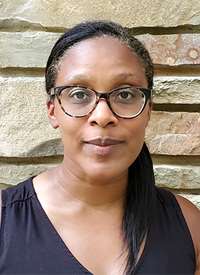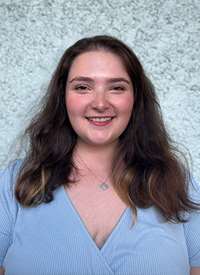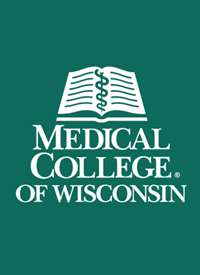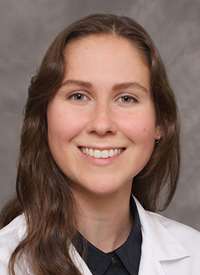Knight Biobehavioral Oncology Lab

Dr. Knight’s research program aims to investigate biological risk and interventions – both pharmacologic and behavioral – for social health disparities in cancer, specifically among transplantation and cellular therapy (TCT) recipients. Our lab does this by investigating how variations in immune function based on socioeconomic status (SES) – among other social health variables including depression, stress, sleep quality, and anxiety – contribute to differential patient responses and outcomes following TCT. Reciprocally, we also investigate how these cancer therapies affect central nervous system function.
To accomplish these goals, we study biobehavioral mechanisms of cancer progression. Candidate mechanisms include the conserved transcriptional response to adversity (CTRA) transcriptome profile and associated molecular changes, inflammation, sympathetic nervous system activation, neurotoxic metabolites, biological aging, and the endocannabinoid system, among others. These pathways are investigated as potential mediators of social health disparities among TCT recipients and have identified that increased CTRA-related transcriptome dynamics are associated with low SES as well as adverse clinical outcomes among hematopoietic transplantation (HCT) recipients.
Dr. Knight’s group has identified a potential effective candidate pharmacologic intervention for such social health disparities – propranolol. They have identified propranolol as an effective pharmacologic mitigator of CTRA gene expression among a cohort of patients with multiple myeloma undergoing autologous HCT. Subsequent future research goals involve investigating whether propranolol is effective in ameliorating adverse clinical outcomes associated with reduced expression of these potential biomarkers. Examples of ongoing and future work include investigating the following:
- Biobehavioral implications of chimeric antigen receptor (CAR) T cell therapy
- Mindfulness to improve sleep and related symptomatology and inflammatory markers among hospitalized HCT recipients
- Effect of donor SES and adversity-related biological mechanisms on recipient HCT outcomes
- Propranolol as an intervention to reduce cancer progression
Our research program continues to inform the clinical field of Psycho-Oncology as we increasingly understand how the central nervous system regulates cancer disease and progression.
Meet the Director | Jennifer M. Knight, MD, MS, FACLP
 The purpose of my research is to investigate biological risk and pharmacologic interventions for social health disparities in cancer, specifically among transplant and cellular therapy (TCT) recipients. I investigate how variations in immune function based on socioeconomic status (SES), among other social health variables, contribute to different patient responses to hematopoietic cell transplantation (HCT) and chimeric antigen receptor (CAR) T cell therapy as cancer treatments. I do this by studying biobehavioral mechanisms of cancer progression; specifically, I have investigated the conserved transcriptional response to adversity (CTRA) transcriptome profile and its associated molecular changes as a potential mediator of social health disparities among HCT recipients. We have identified CTRA-related transcriptome dynamics to be associated with adverse clinical outcomes among HCT recipients. I have identified propranolol as a pharmacologic mitigator of CTRA overexpression, thus identifying it as a candidate intervention to ameliorate adverse clinical outcomes associated with social health disparities. I have extended my work to understanding social health disparities among CAR T cell recipients while additionally exploring other biobehavioral mechanisms of disparities of relevance to TCT.
The purpose of my research is to investigate biological risk and pharmacologic interventions for social health disparities in cancer, specifically among transplant and cellular therapy (TCT) recipients. I investigate how variations in immune function based on socioeconomic status (SES), among other social health variables, contribute to different patient responses to hematopoietic cell transplantation (HCT) and chimeric antigen receptor (CAR) T cell therapy as cancer treatments. I do this by studying biobehavioral mechanisms of cancer progression; specifically, I have investigated the conserved transcriptional response to adversity (CTRA) transcriptome profile and its associated molecular changes as a potential mediator of social health disparities among HCT recipients. We have identified CTRA-related transcriptome dynamics to be associated with adverse clinical outcomes among HCT recipients. I have identified propranolol as a pharmacologic mitigator of CTRA overexpression, thus identifying it as a candidate intervention to ameliorate adverse clinical outcomes associated with social health disparities. I have extended my work to understanding social health disparities among CAR T cell recipients while additionally exploring other biobehavioral mechanisms of disparities of relevance to TCT.
Lab Publications and Activities
Dr. Knight’s research has been funded by the National Cancer Institute and National Institutes of Health (R01 CA238562; R21 CA279935; T32CA269115), the American Cancer Society, the Advancing a Healthier Wisconsin Endowment, and the Laura Gralton Philanthropic Fund.
Knight Biobehavioral Oncology Lab Partner Organizations
Lab Members

Elizabeth Aughey, MD
Internal Medicine Resident

Iwalola Awoyinka, PhD
Postdoctoral Researcher

Peyton Bendis
Clinical Research Coordinator I

Nikhil Desai
Medical Student

Jessica R. Molinaro, MD
Assistant Professor

Keayra Morris, MD
Internal Medicine-Psychiatry Resident

Kristin Seidler
Medical Student

Hannah Uttley, BA
Research Technologist I
NCI T32 Biobehavioral Oncology Training Program
This fellowship is a two-year postdoctoral research training program that integrates 1) the biology of stress and disparities on cancer, and 2) social determinants of health, behavior, and outcomes. The program is supported by an NCI T32 award.
Qualified BBOT program candidates will have an advanced degree with clear interest and focus in research. Successful PhD applicants will have obtained their doctoral degree from a PhD program with a strong foundation in basic, clinical, behavioral, or social science with documented research training. MD/DO trainees will enter the BBOT Program after their clinical training is complete and will have demonstrated an interest in research through prior participation in labs, specialized research tracks, summer research programs, publications, or scientific presentations.
Learn more about this postdoctoral fellowship
Join Our Lab
Please contact us if you are a medical student, resident, fellow, faculty, postdoctoral associate, or graduate student interested in pursuing further training or research in biobehavioral oncology, at either or both a scientific or clinical level.
Jennifer M. Knight, MD, MS, FACLP, FABMR
Program Director
Publications
-
(Aughey E, Shah NN, Hillard CJ, Rentscher KE, Hamadani M, Longo W, Devata S, Knight JM, Cusatis R.) Transplant Cell Ther. 2026 Jan 02 PMID: 41485560 SCOPUS ID: 2-s2.0-105029718493 01/05/2026
-
Distress thermometer problem list and distress and depression in psycho-oncology.
(Wallace L, Banerjee A, Molinaro J, Murray J, Danhieux-Poole C, Uselmann AM, Knight JM.) BMJ Support Palliat Care. 2025 Oct 27;15(6):822-826 PMID: 39939111 SCOPUS ID: 2-s2.0-85218133497 02/13/2025
-
(Henley EC, Liphart HA, Morris KJ, Awoyinka I, Irwin MR, Costanzo ES, Winston D, D'Souza A, Stolley M, Dhakal B, Mohan M, Pasquini MC, Cole SW, Doerwald ES, Bendis PC, Rentscher KE, Rumble ME, Szabo A, Rao S, Knight JM.) Contemp Clin Trials Commun. 2025 Oct;47:101540 PMID: 40893725 PMCID: PMC12397865 09/02/2025
-
(Kennedy VE, Ahmed N, Artz A, Bhatt NS, Custatis R, Espinoza-Gutarra MR, Farhan S, Ferguson RJ, Hamilton B, Katz H, Kelly DL, Knight JM, Lee C, Lin A, Lin R, Mohanraj L, Munshi P, Nawas M, Nelson AM, Odstracil S, Olin R, Phelan R, Rentscher KE, Schoemans H, Sung A, Taylor MR, Wood W, Yuen CH, Jayani-Kosarzycki RV.) Transplant Cell Ther. 2025 Oct;31(10):756-773 PMID: 40614969 SCOPUS ID: 2-s2.0-105012883788 07/05/2025
-
(Banerjee R, Amonoo HL, Barata A, Bhatt NS, Espinoza-Gutarra MR, Jayani-Kosarzycki RV, Katz H, Kennedy VE, Nawas M, Steineck A, Wanjiku C, Costanzo E, Cusatis RN, Knight JM, Schoemans H, Sidana S, Wood WA, Sung AD, Lee CJ, Hamilton BK.) Transplant Cell Ther. 2025 Oct;31(10):774-788 PMID: 40609744 PMCID: PMC12243979 SCOPUS ID: 2-s2.0-105012554368 07/04/2025
-
(McAndrew NS, Wallace L, Guttormson J, McCracken C, Olex M, Banerjee A, Visotcky A, Bartowitz J, Seaman JB, Knight JM, Ferrell B, El-Jawahri A, Applebaum AJ.) Psychooncology. 2025 Apr;34(4):e70142 PMID: 40186356 SCOPUS ID: 2-s2.0-105002065889 04/05/2025
-
(Taylor MR, Cole SW, Bradford MC, Zhou C, Fladeboe KM, Knight JM, Baker KS, Yi-Frazier JP, Rosenberg AR.) Transplant Cell Ther. 2024 Dec;30(12):1209.e1-1209.e7 PMID: 39303988 SCOPUS ID: 2-s2.0-85205689086 09/21/2024
-
Impact of Race and Ethnicity on Outcomes After Umbilical Cord Blood Transplantation.
(Ballen K, Wang T, He N, Knight JM, Hong S, Frangoul H, Verdonck LF, Steinberg A, Diaz MA, LeMaistre CF, Badawy SM, Pu JJ, Hashem H, Savani B, Sharma A, Lazarus HM, Abid MB, Tay J, Rangarajan HG, Kindwall-Keller T, Freytes CO, Beitinjaneh A, Winestone LE, Gergis U, Farhadfar N, Bhatt NS, Schears RM, Gómez-Almaguer D, Aljurf M, Agrawal V, Kuwatsuka Y, Seo S, Marks DI, Lehmann L, Wood WA, Hashmi S, Saber W.) Transplant Cell Ther. 2024 Oct;30(10):1027.e1-1027.e14 PMID: 39033978 PMCID: PMC11842128 SCOPUS ID: 2-s2.0-85200332491 07/22/2024
-
(Lahijani S, Rueda-Lara M, McAndrew N, Nelson AM, Guo M, Knight JM, Wiener L, Miran DM, Gray TF, Keane EP, Yek MH, Sannes TS, Applebaum AJ, Fank P, Babu P, Pozo-Kaderman C, Amonoo HL.) Transplant Cell Ther. 2024 Sep;30(9S):S493-S512 PMID: 39370233 SCOPUS ID: 2-s2.0-85205564123 10/07/2024
-
(Lahijani S, Rueda-Lara M, McAndrew N, Nelson AM, Guo M, Knight JM, Wiener L, Miran DM, Gray TF, Keane EP, Yek MH, Sannes TS, Applebaum AJ, Fank P, Babu P, Pozo-Kaderman C, Amonoo HL.) Transplantation and Cellular Therapy. September 2024;30(9):S493-S512 SCOPUS ID: 2-s2.0-85205564123 09/01/2024


